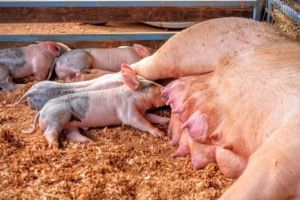News
EU ban expected on the use of zinc for treating animals
This article is more than 8 years old.
New research shows that alternatives such as zinc and copper can cause more problems than the use of some conventional antibiotics

Antibiotics and their alternatives a headache for pig-farmers (photo: Max Pixel)
A research project carried out by the University of Copenhagen has shown that rather worryingly, zinc and copper are more effective at spreading antibiotic-resistant bacteria in the earth than tetracyklin, Politiken reports.
Tetracyclin is one of the antibiotics most widely-used in treating piglets.
Zinc, in the form of zinc oxide, has been used as an alternative treatment, but it seems the genes that make bacteria resistant to antibiotics are freely transferred between bacteria in the earth and the bacteria that cause disease.
The metal is more effective at facilitating resistance than tetracyklin, because tetracyclin is broken down or bound to the earth, whilst zinc and copper remain free and available to ‘favour’ the resistant bacteria, explained Kristian Koefoed Brandt, one of the researchers behind the project.
Already problems with resistance
Resistance to antibiotics can make it difficult to treat diseases if the resistance spreads to the bacteria that cause the disease. There are already a number of infections that are resistant to most types of antibiotics.
Brandt mentioned as an example the variant of the MRSA bacteria that is widespread in Danish pig farming and resistant to several types of antibiotic, as well as zinc.
READ ALSO: Danish MRSA-infected pigs causing problems throughout Europe
Zinc and copper are released onto the fields in pig manure, and the amount in the earth in Denmark is rising. It is not yet at the levels that the researchers have used in their experiment, but there might be areas where it is especially high. The problem is not only confined to Denmark; it is found in other countries where there is a large pig-rearing industry and countries where, in contrast to Denmark, copper-based product-spraying is widely used.
An EU ban on the horizon
An expert committee of the EU medicines agency has also recently suggested that treating animals with zinc oxide ought to be banned. However, they have made the recommendation not because of the risk of resistance, although that is mentioned in the report, but because of the strain it puts on the environment. Zinc can have a negative effect on a number of organisms both in the earth and in water.
The sector director for pig production at the centre for agricultural science, Christian Fink Hansen, believes the ban will become a reality. The trade is prepared for this, he says, and even though zinc is not yet an acute environmental problem, it will become a challenge in the longer run if things continue unchanged.










































